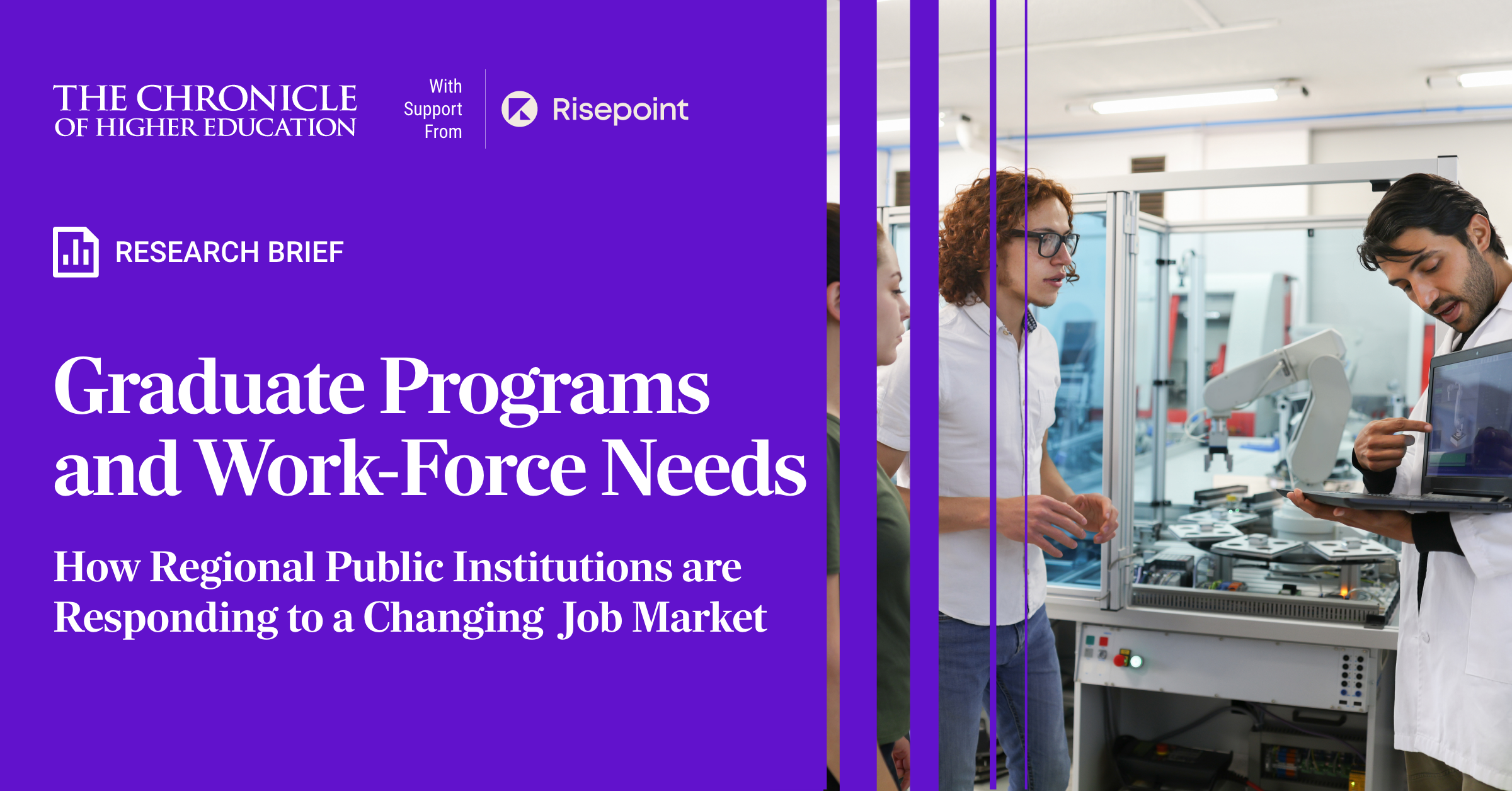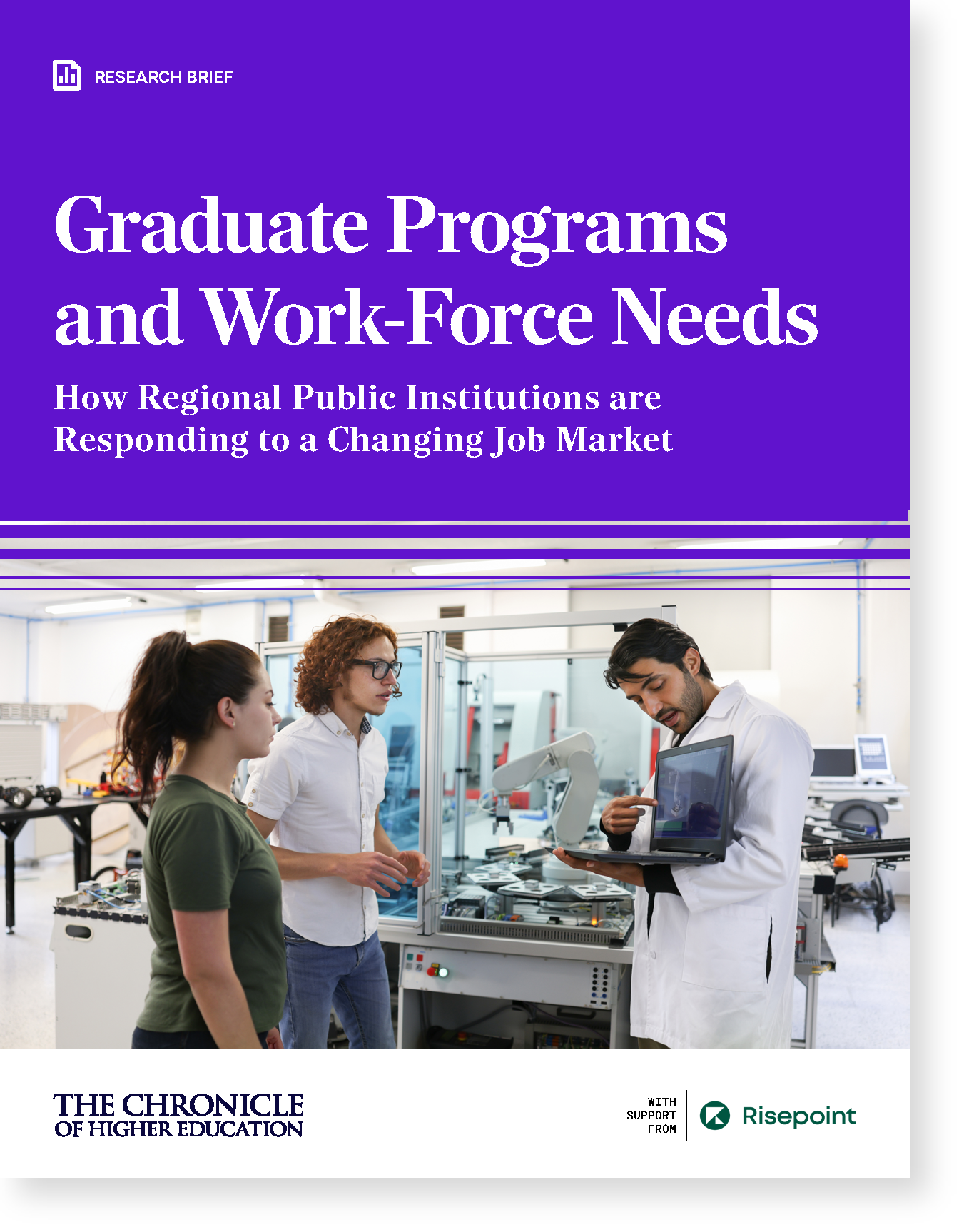

.

Regional public universities, or RPUs, have delivered high-quality graduate education to generations of business leaders, health-care workers, teachers, and other professionals.
From developing flexible academic programs that can reach more adult learners to creating industry-informed certificates or credentials that help working professionals upskill to meet changing work-force demands, these regional publics have a long tradition of catering to work-force readiness.
Yet, as these institutions produce work-ready graduates, they also face ongoing budget woes and a lack of understanding from politicians and the public about the value they offer.
In a recent survey conducted by The Chronicle, more than 400 officials from RPUs shared their sentiments about the roles their institutions play in graduate education in the U.S. as well as work-force development. While many survey respondents remain adamant in their belief that their institution does a good job preparing students for the professional world, they also report challenges like low employee morale and staff and faculty hiring.
Discover the survey results and learn more about the future of regional public universities in this new Research Brief, “Graduate Programs and Work-Force Needs: How Regional Public Institutions are Responding to a Changing Job Market.”
.
Regional public universities, or RPUs, have delivered high-quality graduate education to generations of business leaders, health-care workers, teachers, and other professionals.
From developing flexible academic programs that can reach more adult learners to creating industry-informed certificates or credentials that help working professionals upskill to meet changing work-force demands, these regional publics have a long tradition of catering to work-force readiness.
Yet, as these institutions produce work-ready graduates, they also face ongoing budget woes and a lack of understanding from politicians and the public about the value they offer.
In a recent survey conducted by The Chronicle, more than 400 officials from RPUs shared their sentiments about the roles their institutions play in graduate education in the U.S. as well as work-force development. While many survey respondents remain adamant in their belief that their institution does a good job preparing students for the professional world, they also report challenges like low employee morale and staff and faculty hiring.
Discover the survey results and learn more about the future of regional public universities in this new Research Brief, “Graduate Programs and Work-Force Needs: How Regional Public Institutions are Responding to a Changing Job Market.”
.
.
Complete the form below to download the report